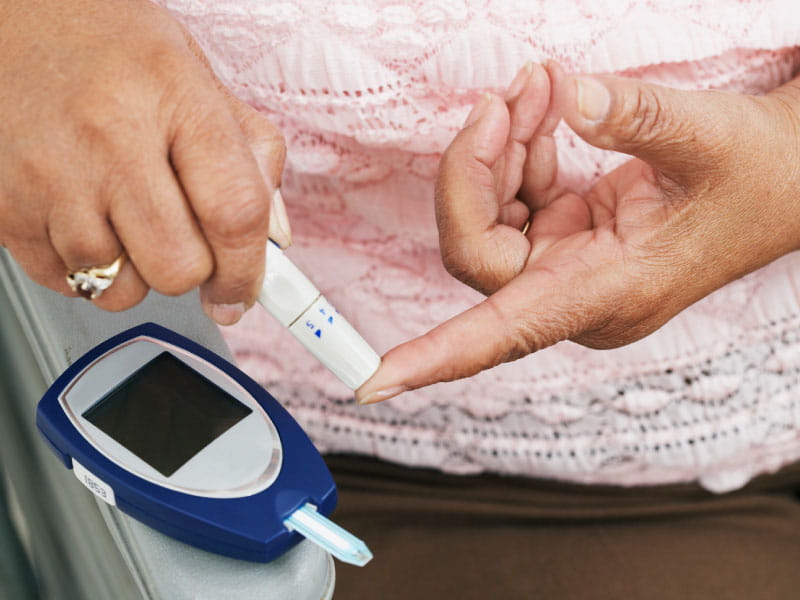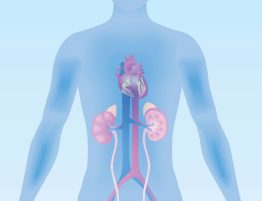
Most people who have Type 2 diabetes in the U.S. aren’t managing risk factors for heart disease, according to a new analysis aimed at guiding doctors and patients on the latest methods to help.
Fewer than 1 in 5 adults with Type 2 diabetes who are not diagnosed with heart disease have healthy levels for blood sugar, blood pressure and cholesterol and don’t smoke, said Dr. Joshua J. Joseph, assistant professor of medicine in the division of endocrinology, diabetes and metabolism at the Ohio State University College of Medicine in Columbus.
Joseph led the panel of experts that wrote the new report from the American Heart Association, which was published Monday in Circulation. It offers a review of the latest science on diabetes and heart disease, including findings about new medications that have changed diabetes care in recent years.
“This new scientific statement is an urgent call to action to follow the latest evidence-based approaches and to develop new best practices to advance Type 2 diabetes treatment” and reduce the risk of cardiovascular disease, Joseph said in a news release.
Type 2 diabetes is the most common form of diabetes. It affects more than 34 million people in the U.S., according to the Centers for Disease Control and Prevention.
Cardiovascular disease is the leading cause of death and disability among people with Type 2 diabetes, which occurs when the body is unable to efficiently use the insulin it makes or when the pancreas loses its capacity to produce insulin. Adults with Type 2 diabetes are twice as likely to die from cardiovascular causes – including heart attacks, strokes and heart failure – compared to adults who do not have diabetes.
The report, which reviewed the latest science on diabetes and cardiovascular disease, suggested the best care should incorporate healthy lifestyle interventions, plus medications or treatments such as surgery that support a healthy weight.
Modifiable lifestyle and societal issues account for up to 90% of the factors related to managing heart disease with Type 2 diabetes. “Social determinants of health, which includes health-related behaviors, socioeconomic factors, environmental factors and structural racism, have been recognized to have a profound impact on cardiovascular disease and Type 2 diabetes outcomes,” Joseph said.
Targets to reduce the risk of heart disease among people with Type 2 diabetes include managing blood sugar, blood pressure and cholesterol levels; increasing physical activity; eating a healthy diet; maintaining healthy weight; not smoking; not drinking alcohol; and getting psychosocial care.
The AHA’s last scientific statement on control of blood sugar, or glucose, was published in 2015, just as research was starting to suggest that glucose-lowering medications also may reduce the risk of heart attack, stroke, heart failure or cardiovascular death.
Since then, several national and international clinical trials have examined such medications, Joseph said. Drugs known as GLP-1 receptor agonists have been “game-changers in reducing the risk of heart disease, stroke, heart failure and kidney disease.”
GLP-1 medications stimulate the release of insulin to control blood sugar. They also reduce appetite and help people feel full, which may help with weight management.
Other drugs known as SGLT-2 inhibitors spur the kidneys to dispose of excess glucose through urine, which lowers the risk of heart failure and slows the decrease in kidney function that is common among people with Type 2 diabetes.
Although many of these medications have become more commonly covered by health insurance plans, cost can be a barrier, Joseph said. And not all patients are aware these newer medications help reduce the risk of heart disease, stroke, heart failure and kidney disease.
The statement also addresses treatments for high blood pressure; the use of statins and other medications to address levels of “bad” LDL cholesterol; and the use of daily low-dose aspirin.
The statement encourages doctors and patients to work together on a personalized care plan. But helping patients manage their risks goes beyond what happens in the health care setting, Joseph said.
“One avenue to continue to address and advance diabetes management is through breaking down the four walls of the clinic or hospital through community engagement, clinic-to-community connections and academic-community-government partnerships that may help address and support modifiable lifestyle behaviors such as physical activity, nutrition, smoking cessation and stress management.”
If you have questions or comments about this story, please email editor@heart.org.








